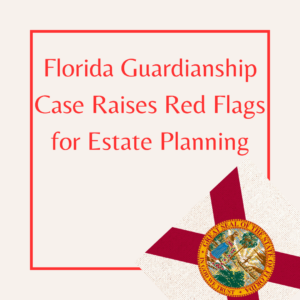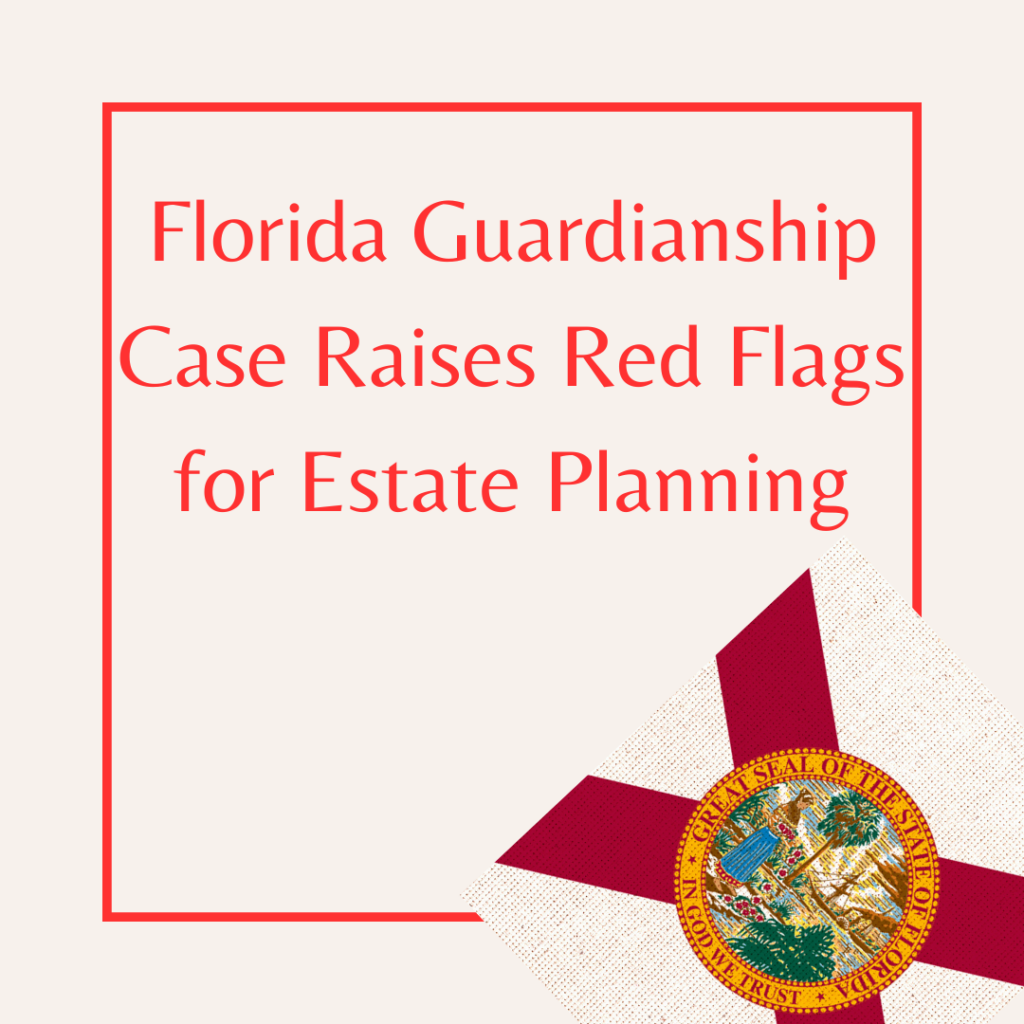No one likes to think of themselves as being older and vulnerable. However, for one Florida man, a medical crisis and the lack of family nearby led to a terrible series of events. The article’s title, from The Washington Post, sums it up: “The retired pilot went to the hospital. Then his life went into a tailspin.”
 The former pilot pulled his Ford Mustang convertible into a gas station and appeared so distressed that someone called 911. He was taken to a nearby hospital, where doctors said he had a stroke. He lived alone, as three out of five Americans in their 80s now do. There didn’t seem to be any family members to call. The hospital went to court and argued that the pilot needed a guardian. The judge agreed.
The former pilot pulled his Ford Mustang convertible into a gas station and appeared so distressed that someone called 911. He was taken to a nearby hospital, where doctors said he had a stroke. He lived alone, as three out of five Americans in their 80s now do. There didn’t seem to be any family members to call. The hospital went to court and argued that the pilot needed a guardian. The judge agreed.
This is not an unusual situation. More than one million Americans are under guardianship, which has been widely criticized for inviting abuse and theft. As Americans age, there is more focus on this arrangement, but few solutions. This man was like many seniors who relocate far from family, and when they show up alone in emergency rooms, they are at risk of falling into the guardianship system.
The court-appointed guardian sold his home for a very low price to a neighbor who was a realtor. An inspector general’s investigation later found “probable cause” for the exploitation of an elderly person and a scheme to defraud. However, the guardian denied any wrongdoing, and there was no criminal investigation.
As it turned out, the pilot, who never married or had children of his own, did have a family. In the past, he had regularly visited his sister, her spouse and a niece and nephew in the Philadelphia area. The visits stopped when his sister developed dementia and died in 2018. His niece said he became harder to reach but eventually would respond to calls and emails until he entered the hospital and no one heard from him.
After the stroke, he was unable to tell anyone to call his family. It’s not clear how hard the hospital tried to reach any relatives.
Like most senior patients, the pilot was covered by Medicare, which pays the hospital by diagnosis, not by length of stay. Generally, in this part of Florida, Medicare pays $23,000 for an elderly stroke patient, assuming a five-day stay. After that, the hospital begins to lose money. Putting a new patient in the same bed would bring in thousands of dollars a day.
The guardian began liquidating his possessions, selling his cars, gun collection, camera equipment and more at an estate sale. She then sold his home before it even went on the market with a private arrangement with a husband and wife real estate team who lived in her community. She sold it to them for at least $100,000 under market value.
While this was happening, a woman who had become an unpaid citizen watchdog after her own father’s horrible guardianship experience uncovered the case, finding court papers about the sale of the house and seeing the undervalued sale. She filed a complaint with the office regulating guardians, hoping it would draw scrutiny to the situation.
At the same time, the pilot’s niece and nephew were searching for their uncle, including writing a letter to the court. However, months went by without a response. Their letter to the court finally got to someone, and the guardian called the nephew. They were happy to establish contact with their uncle, talking with him on FaceTime calls, but had questions the guardian did not answer.
In July 2022, the inspector general’s office issued a critical report stating the guardian had used a “deficient, deceptive and fraudulent” market analysis submitted by the real estate agent. The home was “undervalued and not publicly advertised.” The inspector general’s office urged law enforcement to look into the handling of this home and two other homes the guardian had sold with the same real estate agents. Sadly, the pilot died two days after the state declined to pursue a criminal investigation.
To protect yourself and your family, speak with a Davie, Florida estate planning attorney about the documents you need during life: Power of Attorney, Health Care Proxy, trusts, a will and, equally importantly, creating a plan for contact with family members, no matter the status of your relationships. You can book a call with Carol Grant, P.A. this week!
Reference: The Washington Post (Nov. 4, 2023) “The retired pilot went to the hospital. Then his life went into a tailspin”








